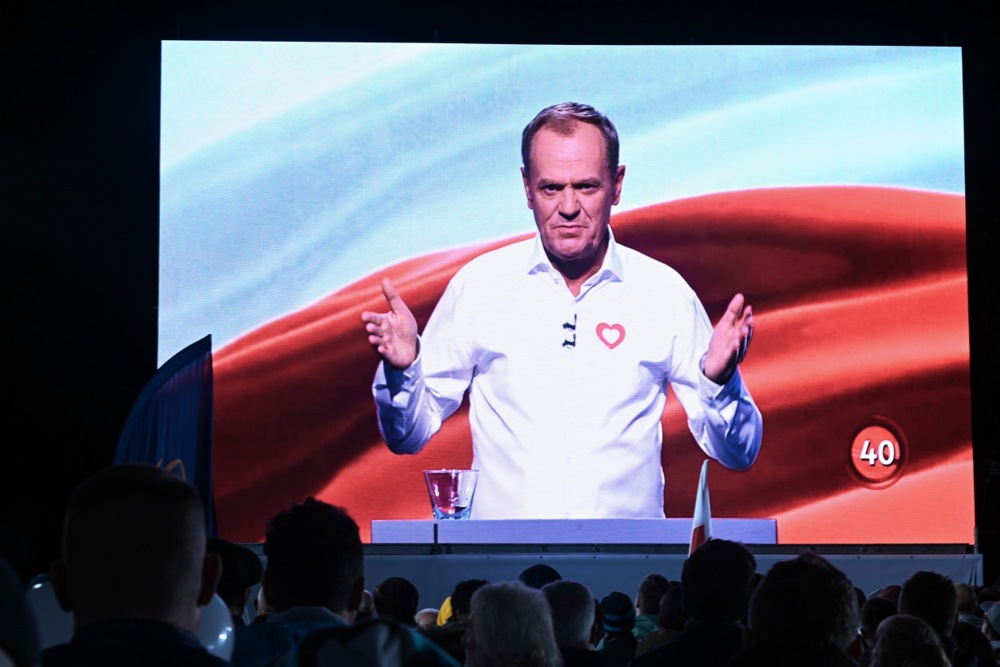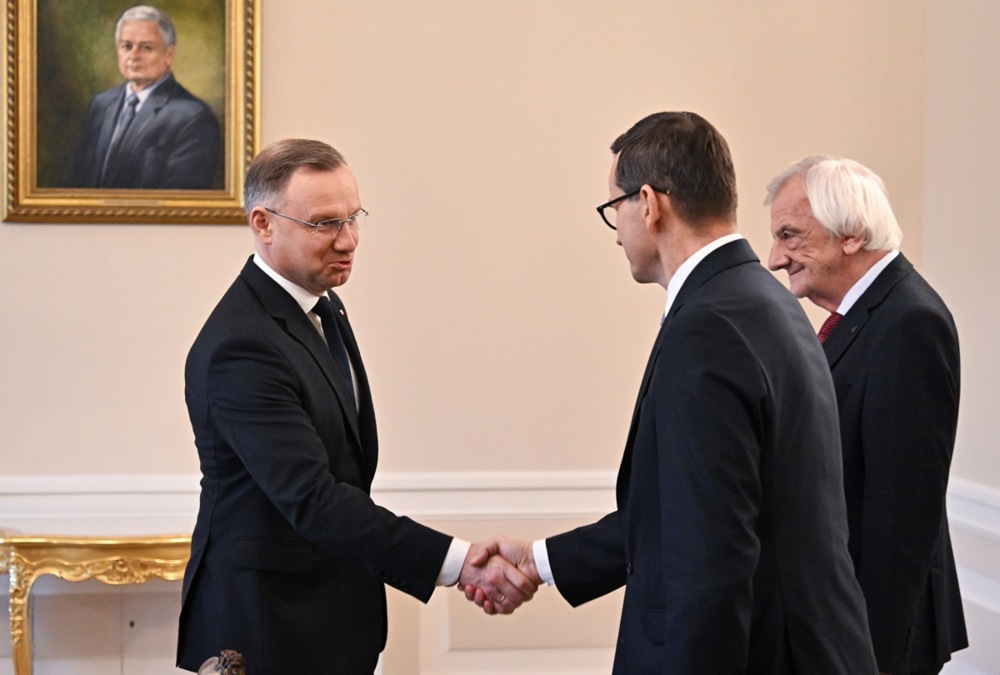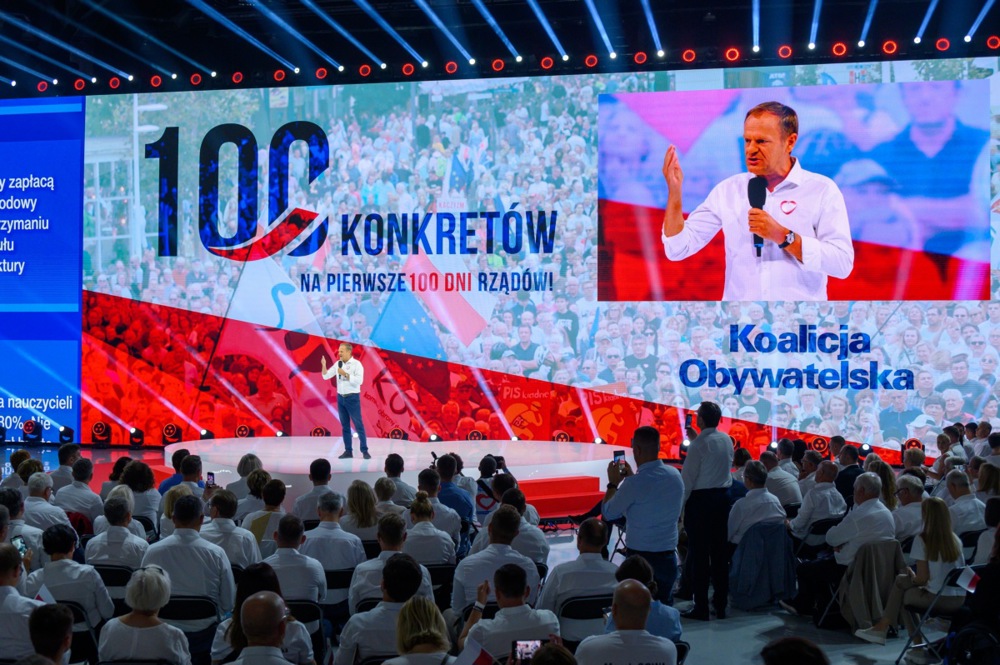Donald Tusk was reinstalled as Poland’s Prime Minister this Wednesday. The leader of Civic Platform may be the darling of the European establishment for now. But he has in the past faced criticism for his actions and policies during his earlier tenure as Prime Minister. His stance then was conciliatory toward Russia. Though most of the architects of the reset with Russia such as Schroder, Merkel, Sarkozy, and Fillon are now gone, Tusk and Radosław Sikorski are still active in Poland.
During the coalition governments with PSL, between 2007 and 2015, Civic Platform actively collaborated with Russia, leading to a series of contentious decisions. Under their leadership, Poland withdrew from the installation of the American missile defense system, forgave a debt of 1.2 billion PLN owed by the Russian company Gazprom, did not block the construction of the Nord Stream pipeline, sold the Możejki refinery to Russia, dismantled a significant number of military units in Eastern Poland, and surrendered control of the Smolensk disaster investigation to Russian authorities.
From the very beginning, Tusk’s administration engaged with Russia despite several hostile actions by the Putin regime, such as the poisoning of Alexander Litvinenko and the suppression of free press.
The most significant point of contention was probably the handling of the American Missile Shield during Tusk’s administration. This defensive mechanism was intended to protect the West against ballistic threats in a revolutionary fashion. Tusk’s government derailed its implementation, which some believe would have been a protective measure not just for Poland but for its allies as well. They insisted on excessive demands related to the modernisation of the Polish army as part of the agreement, which resulted in prolonged negotiations and delays.
The 2008 invasion of Georgia by Russia brought a renewed urgency to the negotiations, leading finally to a bilateral agreement between Poland and the US. Despite this, the protracted ratification process in the Polish parliament, lasting more than two years, introduced a long phase of uncertainty, paving the way for shifts in strategies in the corridors of power in both Poland and the US.
This is exactly what unfortunately happened with the inception of the Obama administration, which, though initially enthusiastic about the plans initiated under the Bush administration, decided eventually to scrap them, resulting in the watering down of the initial robust defense proposition. The Polish government’s passiveness raised concerns over Poland’s security preparedness and the strength of its alliance with the US.
In 2010, Jarosław Kaczyński, the leader of Law and Justice, criticised the lack of Western response to Russia’s assertive foreign policy and the European pivot to Russian cooperation for economic gains. Sikorski, the Foreign Minister at the time and again now (and Anne Applebaum’s husband) dismissively responded to these warnings, with the quip: “Kaczyński is on drugs”.
In a striking image of conciliation, just a month after the Smolensk crash that killed President Lech Kaczyński among many others, the Polish army participated in a parade on Red Square under Civic Platform’s government.
Sikorski’s statements over the years have further sparked controversy, ranging from suggesting in 2010 that Russia could one day join NATO to lamenting Poland’s missed opportunity to participate in the Nord Stream 2 project, and criticizing the Law and Justice party for its stance toward Germany and Russia.
A Transparency International report published in 2022 pointed to Radosław Sikorski earning from €588,000 to €804,000 a year for as many as 12 undisclosed activities during his tenure as a Member of the European Parliament, raising questions about potential conflicts of interest and integrity in office. Sikorski tops the ranking of revenue from undisclosed activities in the European Parliament.
The Civic Platform’s track record and stance on Russia should have consequences for both Tusk and Sikorski’s political careers, yet they remain figures in the incoming government. Civic Platform’s position on Ukraine also comes under scrutiny, particularly when recalling Sikorski’s 2014 conversation with a Ukrainian protest leader. Sikorski told him that if he didn’t support the pro-Russian deal, there would be martial law and they “will all be dead”. Such behavior casts a shadow on Poland’s commitment to Ukrainian sovereignty.
In the face of these controversial histories and the proposed defense policies of the new coalition government, Poland’s strategic direction remains a point of intense debate. Civic Platform’s ambiguous approach towards Russia represents a significant shift from the current administration’s aims. This is problematic not only for Poland but also for the whole West, as Poland’s defense policy is not merely a domestic concern but a critical component of broader NATO strategy.





Did PiS or Civic Platform win Poland’s election? The answer is not a simple one. Don’t expect Tusk to be PM any time soon